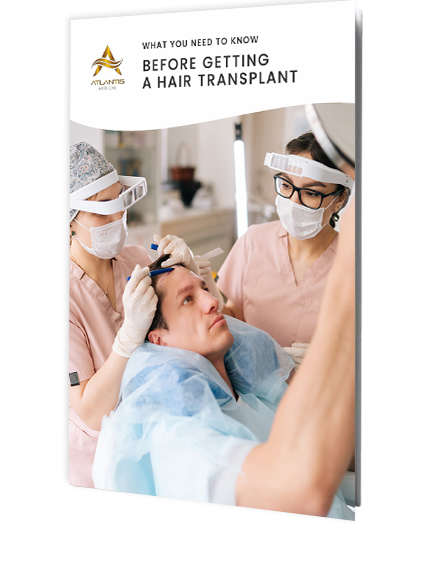When is The Best Time to Get a Hair Transplant?
- August 5, 2025
- Dr. Vikram Jayaprakash
Last updated on August 12, 2025
Table of Contents
ToggleTiming Isn’t Everything — But It Matters More Than You Might Think
For anyone considering a hair transplant, one of the most common questions is: When is the right time to go ahead with it? While the procedure itself is important, timing can play a significant role in your long-term results, comfort during recovery and overall satisfaction.
It’s not just about the method — it’s about making sure the timing works for your stage of hair loss, your health and your lifestyle. From age and hair loss progression to Melbourne’s climate and your schedule, we’ll break down the key factors that influence when to get a hair transplant.
Why Timing Matters
A hair transplant is a long-term investment, and like any procedure, it’s most effective when done under the right conditions. The timing affects how well the new grafts blend with existing hair, the amount of donor hair available and how easily you’ll be able to recover and maintain the results.
Whether you’re noticing early signs of thinning or already dealing with visible balding, understanding the ideal timing for a hair transplant can help you plan more effectively.

Factors That Influence the Best Time
Age and Hair Loss Pattern
One of the most important factors in determining the best age for hair transplant surgery is the stability of your hair loss. Many men experience ongoing thinning throughout their 20s, which makes it difficult to predict future hairline recession.
If a transplant is done too early, there’s a higher chance that surrounding native hair will continue to fall out, leaving behind isolated grafts. Most professionals recommend waiting until hair loss has stabilised (often around the late 20s to early 30s) to ensure a natural, long-term result.
Health and Lifestyle Readiness
Physical health plays a key role in both the outcome and the recovery of your transplant. If you’re managing chronic conditions, on certain medications, or healing from another procedure, it may be better to delay surgery.
Lifestyle also matters. If you work in a physically demanding job, plan to travel, or have events coming up, scheduling your transplant around a quieter period can make your recovery more comfortable. Our team works closely with patients to align treatment plans with their work, travel and personal commitments, ensuring minimal disruption.
Melbourne’s Seasonal Considerations
For patients living in Melbourne, seasonal timing for hair transplant surgery can influence recovery. In general, cooler months (autumn through spring) provide a more comfortable environment post-procedure:
- Reduced sweating lowers the risk of irritation during healing
- Less intense UV exposure helps protect the scalp
- You’re more likely to wear hats or stay indoors, which supports aftercare
While summer procedures are still safe, they may require stricter post-op management, especially if you’re outdoors often. Planning your transplant in line with Melbourne’s climate can be a smart move for recovery comfort and compliance.

Does Timing Differ for FUE vs FUT?
If you’re weighing up FUE hair transplant versus FUT hair transplant, you may wonder if timing influences the choice. While both techniques offer effective, natural-looking results, their recovery periods differ slightly.
- FUE typically results in less scarring and has a faster healing time, which can suit patients with shorter recovery windows.
- FUT may be better for those needing more grafts in a single session, but it can require a longer period of downtime due to the linear incision at the donor site.
At Atlantis Medical, we guide each patient through both options during the consultation to ensure the technique and timing align with their goals and lifestyle.
How Atlantis Medical Determines Readiness
We don’t take a one-size-fits-all approach. Every hair transplant begins with a thorough consultation to assess:
- The pattern and stability of your hair loss
- The quality and availability of your donor hair
- Your age, health history and overall expectations
As we only treat one patient per day, we’re able to dedicate the time required to plan your procedure carefully, ensuring timing is tailored to your individual needs.
When Might It Be Best to Wait?
Not everyone is ready for a transplant right away. You may benefit from holding off if:
- Your hair loss is progressing rapidly or hasn’t stabilised
- You’re experiencing active scalp conditions like dermatitis
- You’re unable to take the necessary time for post-op care
- You’re considering future medications that may affect hair growth
In these cases, we may suggest deferring surgery and revisiting the discussion after monitoring your hair loss for a few more months.
Conclusion
There’s no universal answer to ‘when to get a hair transplant’, but there are clear signs of the right time for you. The best outcomes are often seen in patients who:
- Have stable hair loss
- Are in good general health
- Can plan for appropriate aftercare
At Atlantis Medical, we help patients in Melbourne and beyond make informed decisions about when to get a hair transplant, not just whether to have one. If you’re unsure about timing, booking a consultation is the first step in making the right choice for your stage of hair loss and lifestyle.
How to Book a Consultation
Booking your consultation is simple.
- Call us on (03) 9070 5234
- Contact us via our website
- Email us at enquiries@atlantismedical.com.au
- Or visit us at Level 2, 148 Glenferrie Road, Malvern, Vic 3144
Opening Hours
Mon – Fri: 8:30am – 5:00pm
Sat – Sun: Closed
Frequently Asked Questions
When is the best time to get a hair transplant in Melbourne?
The cooler months in Melbourne are often preferred, as lower sun exposure and reduced sweating can support a smoother recovery. However, the ideal timing also depends on your hair loss stability, health and personal schedule.
How do I know if I’m ready for a hair transplant?
If your hair loss has remained stable for 6–12 months and you have sufficient donor hair, you may be a good candidate. A consultation is essential to assess readiness and create a tailored treatment plan.
Does age matter when getting a hair transplant?
Age matters less than the stage of hair loss, but many people benefit from waiting until their late 20s or early 30s, once the hair loss pattern is more predictable. Early transplants may require future sessions as loss continues.
What is the best season to schedule a hair transplant in Australia?
Autumn through spring is generally considered ideal due to milder temperatures and lower UV levels. This can make recovery more comfortable and reduce the risk of sun-related complications.
What makes someone a good candidate for hair transplant timing?
Good candidates typically have stable hair loss, healthy donor areas, realistic expectations and the ability to follow post-operative care instructions. Timing is also influenced by work, lifestyle and seasonal factors.
Any surgical or invasive procedure carries risks. Before proceeding, you should seek a second opinion from an appropriately qualified health practitioner.

About the Author
Dr. Vikram Jayaprakash
Dr. Vikram Jayaprakash is the Clinical Director of Atlantis Medical, one of Melbourne’s premier hair restoration clinics. Trained at the University of Southampton Medical School, he spent over a decade working alongside Dr. Russell Knudsen at the renowned Knudsen Clinic before establishing his own practice. As one of only three doctors in Australia to hold Board Certification from The American Board of Hair Restoration Surgery and one of two to attain Fellowship status with the International Society of Hair Restoration Surgery, Dr. Jayaprakash brings unparalleled expertise to every procedure.
Categories
Categories
- Female Hair Loss (5)
- General (3)
- Hair Health (3)
- Hair Loss (9)
- Hair Loss Treatment (7)
- Hair Transplant (18)
- Male Hair Loss (8)
- Non Surgical Treatments (1)
- Scalp Health (1)






